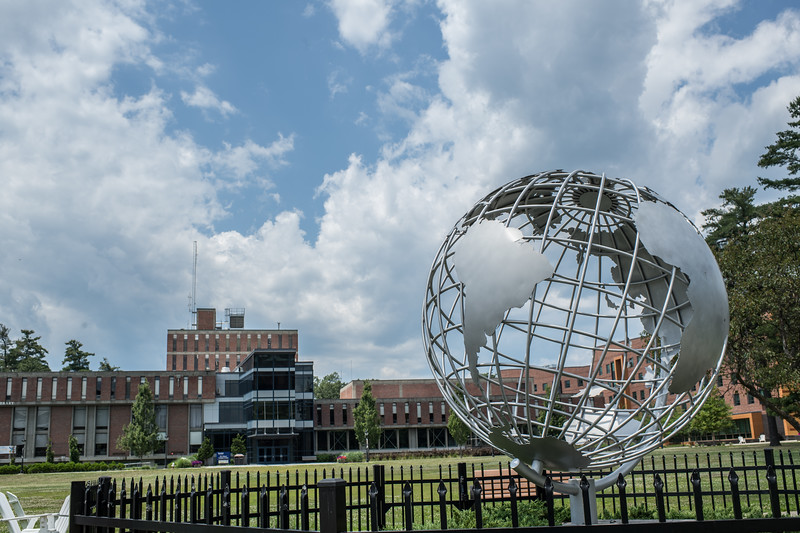
The Westfield State University Globe on the campus green, July 2019
By Ramon S. Torrecilha
While Westfield State University’s mission will always be focused on providing an accessible, high-quality learning experience, we also see continuing education as a significant asset – one that provides the training, certifications, and skill sets needed to meet the demands of our regional economy while also promoting opportunity for all.
With continuing education, Westfield State meets its students where they are. That includes online classes – the majority of our continuing education courses are online – which eliminate traveling to campus and fit better with a busy work schedule. We also offer select programs at satellite locations in the Berkshires, Springfield, Northampton and Worcester.
Our commitment to lifelong learning also means that Westfield State supports students no matter where they are on their educational journey; we have programs and resources to optimize success. We have several bachelor degree programs offered at night and online, and many more offered through a combination of day and evening courses. Partnerships with area community colleges further allow us to support students looking to continue their education. Nine master’s degree programs provide advanced and specialized education.
We tailor programs to the particular professional needs of people working a full-time schedule. This might include a registered nurse working on a bachelor of science in nursing that enables attainment of a higher position. Or, perhaps, a case manager at an addiction treatment program seeking a certification.
There is much national debate about the value of a college education. Is it designed to provide general skills that will suit one well in their professional endeavors – such as critical thinking – or should it be adapted to provide more job-specific skills, like coding?
We believe that we can do both.
Classroom learning – whether in person or online – for our undergraduates, for instance, focuses on general knowledge-building activities as well as reasoning, analyzing, and comprehending. For our traditional students, coursework is complemented with our internship program, which allows students to develop actual workplace skills that they can apply to their careers.
Continuing education helps reach non-traditional students and provide the highly specialized skills on which our regional economy depends. Many of our continuing education programs are ideally suited for people who have already been on the job for years or even decades. This learning experience is intended to complement skills already attained, or to help someone prepare for a new career.
Westfield State offers several opportunities for students working to change or advance their careers through one of several undergraduate and graduate certificate programs, including the emergency medical technician (EMT) Program and the graduate certificate in homeland security. These programs provide the requisite training to work as an EMT or in law enforcement – timely professions as we all cope with the COVID-19 coronavirus pandemic. Of course, some people may take advantage of our highly specialized and streamlined non-credit certificates, like the addiction counselor education program and the paralegal certificate program.
Long before the COVID-19 pandemic, Westfield State has sought to expand our distance education. This crisis has further demonstrated the immense value and benefits in leveraging technology for remote learning.
Access to education through continuing education can be multi-generational. While we pride ourselves on helping first-generation students open the door to a traditional college education, lifelong learning opportunities also open the door to make higher education a possibility for their parents’ generation as well.
Horace Mann, founder of Westfield State, once said, “Every addition to true knowledge is an addition to human power.”
By creating access to education and meeting students where they are, we seek to equip people with power: the power to improve their lives by strengthening professional opportunities and ensuring readiness to work in a fast-changing world.
Continuing education may not have been part of Horace Mann’s vision when he created a college without barriers of race, creed, or economic status, but, in reality, it seems exactly aligned with what he envisioned. Continuing education helps level the playing field as it provides a vital workforce for our region.
Ramon S. Torrecilha is president of Westfield State University. His column appears monthly. To learn more about Westfield State and its programs, go online to westfield.ma.edu.






